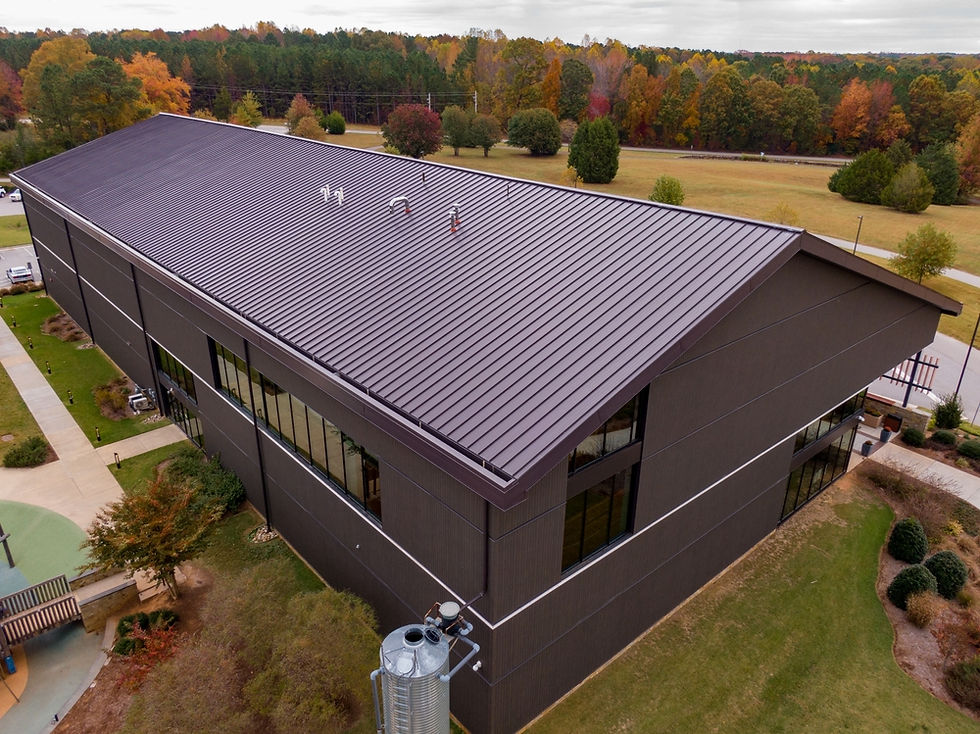Choosing The Right Air Conditioning System For Your Home
- annawrench1315
- Jun 8, 2023
- 4 min read
Updated: Oct 29, 2025
As temperatures rise during the hot summer months, many homeowners look for ways to keep their living spaces cool and comfortable. Choosing the right air conditioning system for your home is a crucial decision that directly affects your family's comfort and energy bills. With various types of air conditioning systems available in the market, it can be overwhelming to select the perfect one for your needs. In this article, we will discuss the different types of air conditioning systems, their features, energy efficiency, and maintenance requirements to help you make an informed decision.
Types of Air Conditioning Systems
a. Central Air Conditioning
Central air conditioning systems are the most common type of cooling system used in homes. They consist of an outdoor compressor unit and an indoor air handler that work together to cool the entire house. These systems use a series of ducts to distribute cool air throughout the home. Central air conditioning systems are ideal for larger homes and provide consistent cooling and dehumidification. However, they can be expensive to install and require regular maintenance to ensure optimal performance.

b. Ductless Mini-Split Systems
Ductless mini-split systems are an energy-efficient alternative to central air conditioning. These systems consist of an outdoor compressor unit and one or more indoor air handling units. They are connected by a refrigerant line that runs through a small hole in the wall, eliminating the need for ductwork. Ductless mini-split systems are ideal for cooling individual rooms or areas of a home and can be easily installed in new or existing homes. They offer precise temperature control and can be more energy-efficient than central air conditioning systems.
c. Window Air Conditioners
Window air conditioners are a popular and affordable option for cooling smaller spaces. These units are designed to fit into a window and can be easily installed and removed as needed. Window air conditioners are perfect for apartments or homes without central air conditioning, as they can cool individual rooms effectively. However, they may not be as energy-efficient as other options and can be noisy during operation.
d. Portable Air Conditioners
Portable air conditioners are similar to window units but are designed to be moved from room to room as needed. They are typically placed on the floor and vented through a window or sliding door using a provided hose. Portable air conditioners are ideal for individuals who rent or those who need temporary cooling solutions. They are easy to install and can be moved as needed, but may not be as energy-efficient or quiet as other options.
Factors to Consider When Choosing an Air Conditioning System

a. Cooling Capacity
One of the most important factors to consider when choosing an air conditioning system is the cooling capacity. This is typically measured in British Thermal Units (BTUs) per hour and determines how much heat the unit can remove from a space in one hour. When selecting an air conditioner, it's essential to choose the right size for your space. An undersized unit will struggle to cool the room, while an oversized unit will cool the room too quickly, causing it to turn on and off frequently and reducing energy efficiency.
b. Energy Efficiency
Energy efficiency is a significant consideration when selecting an air conditioning system. The Seasonal Energy Efficiency Ratio (SEER) rating measures the efficiency of central air conditioning systems and ductless mini-split systems. The higher the SEER rating, the more energy-efficient the system is. For window and portable air conditioners, look for the Energy Star label, which indicates the unit meets specific energy efficiency guidelines set by the U.S. Environmental Protection Agency.
c. Installation and Maintenance
The installation and maintenance requirements of an air conditioning system should also be considered when making your decision. Central air conditioning systems require professional installation and regular maintenance to ensure optimal performance. Ductless mini-split systems are easier to install but still require professional assistance. Window and portable air conditioners are the simplest to install and require minimal maintenance.
d. Noise Levels
Noise levels are a significant concern for many homeowners when selecting an air conditioning system. Window and portable air conditioners tend to be the loudest, while central air conditioning systems and ductless mini-split systems are generally quieter. Consider the noise levels of the units you are considering and select one that fits your comfort preferences.
Tips for Maximizing the Efficiency of Your Air Conditioning System
1. Regularly clean or replace your air filters to ensure optimal airflow and efficiency.
2. Seal and insulate your ductwork to prevent air loss and improve energy efficiency.
3. Use a programmable thermostat to adjust the temperature settings when you are not at home, saving energy and money.
4. Properly maintain your air conditioning system by scheduling regular maintenance with a professional HVAC technician.
5. Install window treatments or shading devices to block direct sunlight and reduce the cooling load on your air conditioning system.
Conclusion
Choosing the right air conditioning system for your home is essential for maintaining a comfortable and energy-efficient living environment. By understanding the different types of air conditioning systems and considering factors such as cooling capacity, energy efficiency, installation and maintenance requirements, and noise levels, you can select the best cooling solution for your needs. Remember to follow the tips mentioned above to maximize the efficiency of your air conditioning system and enjoy a cool and comfortable home all summer long.





Comments